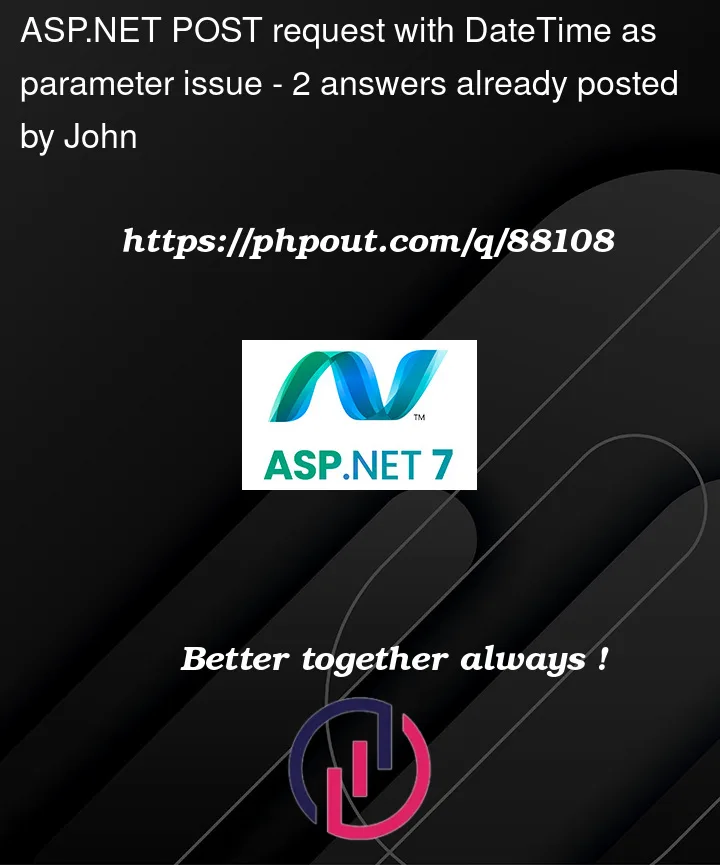I’m trying to pass from my client-side (angular) a date object to my API. (POST request)
Unforently, The API receives it but the date is absolutely wrong.
Sending: Thu Nov 11 2021 10:00:00 GMT+0200
Reviced: 1/1/0001 12:00:00 AM
The controller:
[HttpPost("{appointment}")]
public async Task<ActionResult> SetAppointment(DateTime setAppointment)
{
// code
}
Client-side
setAppointment(date) {
return this.http.post(environment.apiUrl + 'barber/appointment', date);}
When date – is a DateTime object.
I have tried sending it as a string and then parsing it to a DateTime object and it kind of works but this is not my desired result.
I have tried explicitly parsing the date to a DateTime object on the client-side before sending, but it didn’t work as well.
The expected result is to get the date as DateObject straight away in the controller.
Any ideas of why this type of thing happens? I understand that js and c# treat DateTime object in a different way but don’t really understand how can I fix it or work around it without sending it as a string.
Thank you !!!




2
Answers
Use
momentlibrary in Angular in order to send the wanted value in a format that will be automatically cast into DateTime format variable.Issue one: Parameter Naming
The annotation
[HttpPost("{appointment}")]contains a variableappointmentwhich isn’t captured by the methodSetAppointmentbecause none of the parameters have this name. Instead you have a parameter namedsetAppointment. The names will have to match.Issue two: URI
No sample URI is provided in the problem, ensure that it is encoded correctly as that is a common pitfall.
Issue three: Format of Date
Typically a server might have multiple different types of clients using it. Typically the client conforms to the server’s date format (use a standard date format though). You can choose to have the server follow the format you are passing from
Angularso long as it’s encoded. In that case you could instead retrieveappointmentas astringand parse it using a custom date and time format that matches what the server will receive.